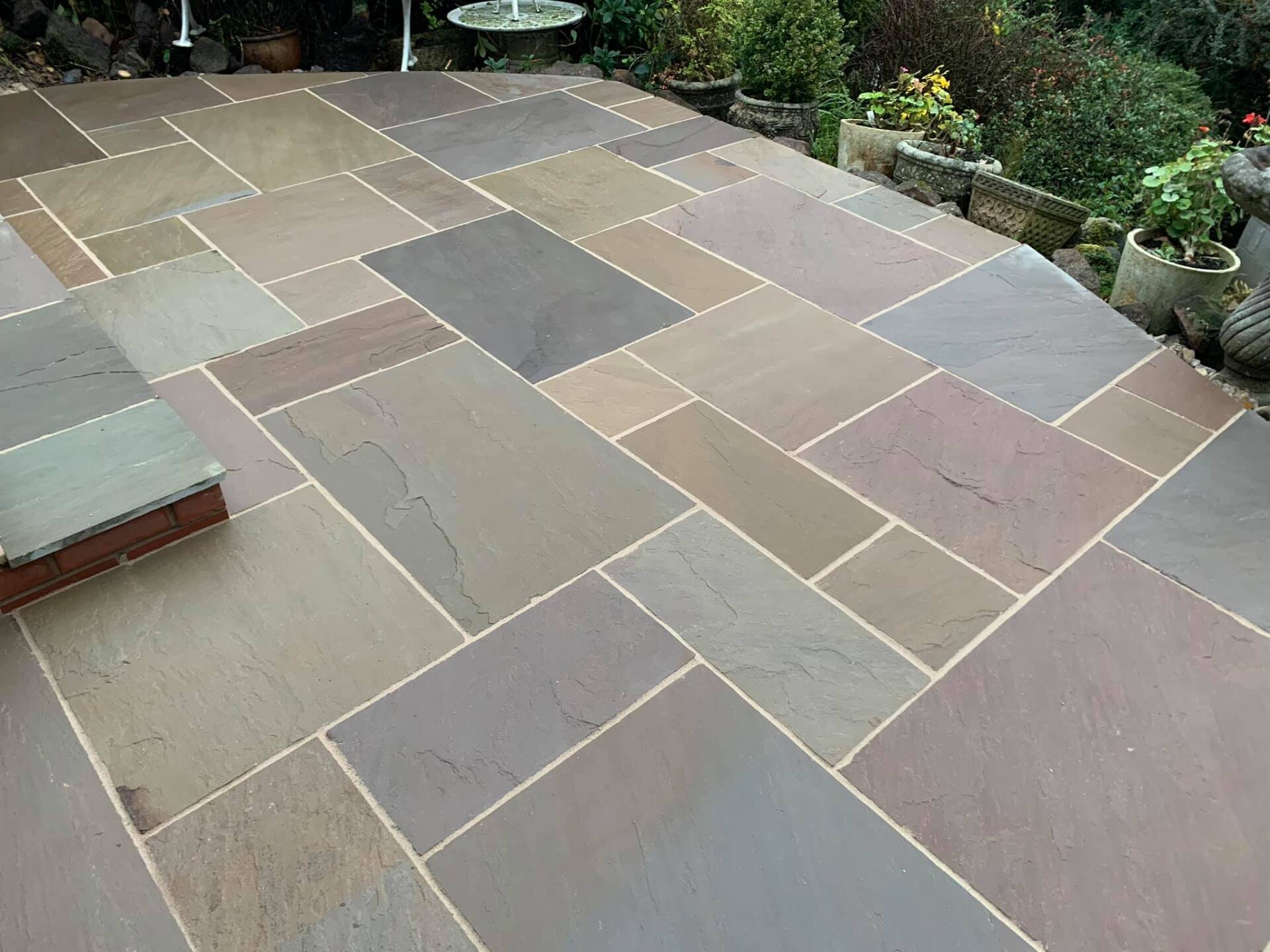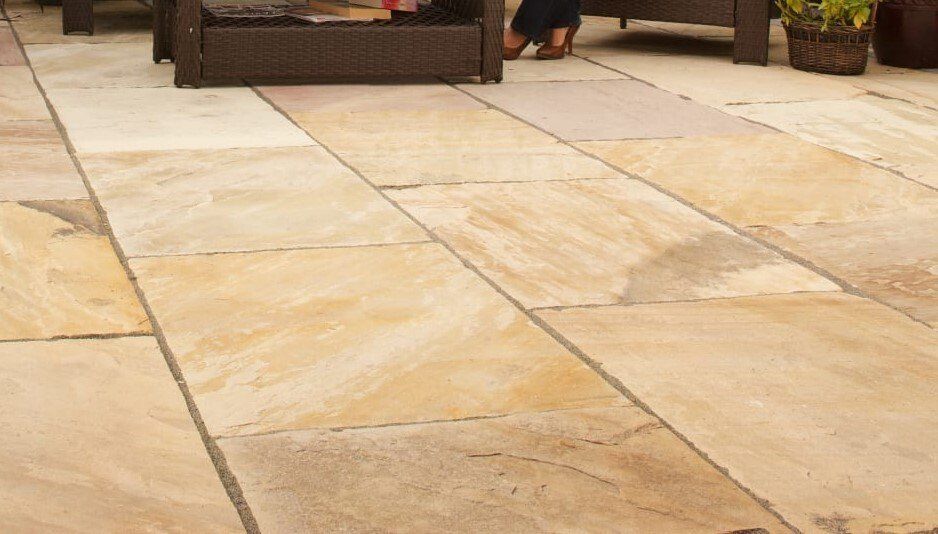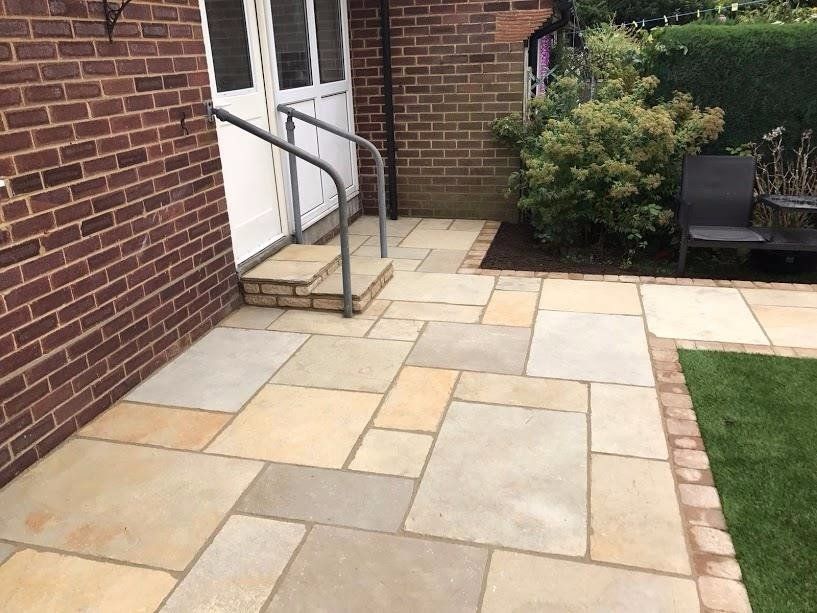Indian Stone Patio Leeds
Indian Paving Leeds
Well unsurprisingly the clue is in the name. Indian Stone mostly comes from India so is a natural, imported product. It's popularity has gradually increased to now be one of the most popular choices for both paving, patios and driveways and is often proposed by landscaping companies as a great looking yet affordable patio option.
Since they are a natural product they have rustic appearance, which is perfect for blending into landscaping projects and have good durability but are quite porous - which means that, untreated, water could absorb into the stone. Once there, it has the potential to expand in frost, potentially causing paving stones to crack. However, when properly sealed you will have a great looking patio for many years.
Indian Stone Patio Installlation
Here's a recent installation we did for a customer in Leeds using Raj Green Indian Stone which incuded a step doen from the kitchen and patio doors and several steps down to the garden.
Indian Stone Options
As well as a number of variations in the colours the edging can also vary. This will depend on how the stone has been cut. If a saw has been used then you will have neat consistent edges and thickness of your paving slabs, hand cut slabs on the other hand will have much more variance in thickness and edges will be rougher. These hand cut Indian stones work exceptionally well if you are aiming for a old style cottage, rustic look.
As mentioned Indian stone has also grown in popularity for use in driveways. However, if you are looking to have a consistent Indian stone finish from the front to back of your house with a pathway connecting the two you need to ensure that your paving or driveways contractor is not using the exact same Indian paving stones for both your path and patio as well as your driveway.
Indian Stone driveway slabs should be thicker to take the additional weight, movement and more general wear and tear than that on a typical patio. Whilst you could chose to have all areas paved with driveway grade Indian stone, as it is a thicker slab it will be more expensive so this will add to your overall costs and is unlikely to be required - so could be said to be 'over specified' if use for pathways and patios. Clearly it will perform exceptionally well but if you are working to a budget this is worth knowing.
As well as options in thickness and edges the most visual aspect will be the colour options. Some of the good quality trade suppliers will have a range of off white shades, sandstone and darker buff shades to choose from. This will also include stabs which are distinctly a single tone and those which exhibit a couple. However, what is quite popular is to have a mix of several colours and sizes to provide a unique and interesting patio finish.
Looking after Indian Stone Paving
As previously mentioned the only possible negative surrounding Indian stone is its porous characteristic. This increase the likelihood of possible breakages following extremely cold weather but will not definitely be the case. It is a natural product so is used to the elements but as a result it is also prone to fading which again can make your paving continue to look more natural. However, this is a preference issue and can easily dealt with by applying an appropriate sealant. As well as protecting your stone from moisture absorption it will also protect them from fading. Sealants will either be available as clear or coloured, the latter will allow you to enhance the colour of your paving if desired. It is a relatively easy task to apply and only needs to be doe once every few years. As with all patio options our experts will be happy to discuss all options with you.
Need help?



